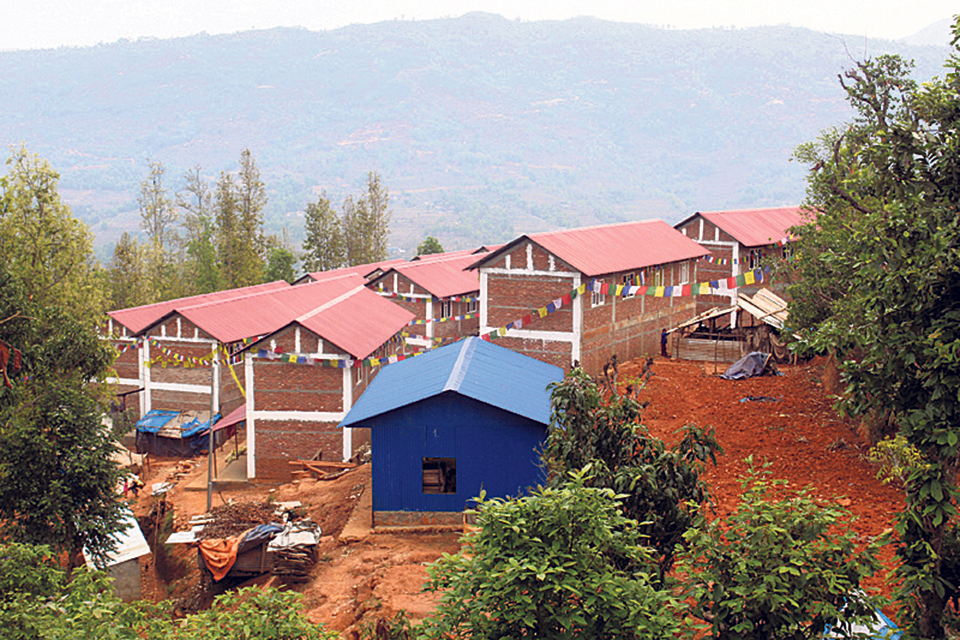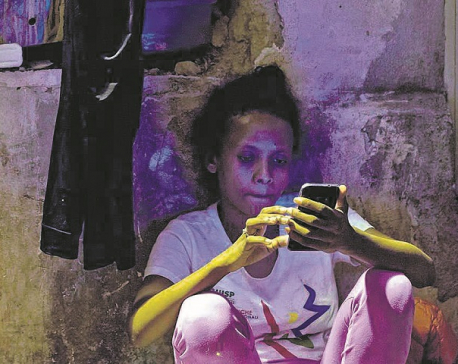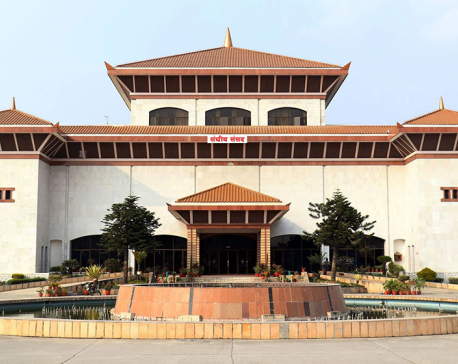
OR

More from Author
Right to housing is not the same as the right to land. The state must make every possible effort to implement the right to shelter and take progressive steps in that direction
Housing has been one of the highlights of constitutional schemes on fundamental rights in Nepal, setting an ambitious target of providing homes for homeless and needy citizens. The parliament enacted Right to Housing Act (2018) to implement Article 37 of the constitution, which guarantees every person the right to appropriate housing.
From non-deprivation of right to shelter to its preservation, from negative to positive content, right to life has been fundamentally transformed by the magical wand of progressive fundamental rights embodied under the constitution. This extension in the dimensions of right to live with dignity has been made possible by ensuring an extended meaning to the word life and liberty in Article 16. These are organic terms, which have to be liberally construed so as to mean that right to life is something more than mere survival and mere existence. In this respect, the constitution of Nepal guarantees all those aspects of life which make life meaningful, complete and worth living.
Although the magnitude of right to housing would depend upon the available resources, the legislation stands as a lamppost which shows a vivid path to realize the right to shelter and housing which do not necessarily mean a mere right to a roof over one’s head but the right to own a home where a person has opportunities to grow physically, mentally and spiritually.
The preamble of Right to Housing Act mentions that the legislation has been brought into force to guarantee every homeless citizen an appropriate house. Section 3 provides a bundle of rights to citizens that include right to safe housing and right to protect and promote religious, social and cultural identity. The law recognizes that quality and safety of homes is closely associated with health.
Government duty
The Act has a plethora of provisions that supplement cooperative federalism. The fair corpus of legal mandates intend to give a message that the objectives the legislation has intended to achieve cannot be fulfilled unless there is close coordination and cooperation among three spheres of government.
The Act has a good deal of provisions that empower the local bodies to take steps in achieving the cherished goals. Section 9 directs the local bodies to prepare a list of homeless citizens in their respective jurisdiction, while the succeeding clause (Section 10) envisages that local bodies would provide the identity cards to the persons so enlisted. In this way, the legislation authorizes the local government to conduct the groundwork and pave the way for the province and centre to act further. Moreover, Section 18 makes federal and or provincial government duty bound to coordinate with the local bodies while expediting any plans and policies regarding the right to housing.
The federal and provincial governments are required to allocate budgets and arrange manpower so required to enforce the provisions, while the responsibility to implement the law lies on local bodies. This arrangement, thus, supplements the concept of cooperative federalism plus bargaining space in the sense that the law provides ample opportunity for the provincial governments to negotiate with federal government for the allocation of budget as well as human resources. It can also be said that local bodies have the right of implementation, while the provincial and federal government have the concurrent (shared) jurisdiction over the resource or budget allocation. Of late, the federal countries, like India, are found spearheading the notion of bargaining federalism by giving sufficient opportunity to the second and third tiers of the government to negotiate with the centre for ‘proper’ allocation of budget and resources.
Moreover, Section 22 stipulates that it would be the collective responsibility of the federal, provincial and local governments to monitor the implementation of the provisions enshrined under the Act.
The local bodies, through their Judicial Committee, are also empowered to adjudicate the controversies or disputes relating to housing. But, Section 29 is put in place to provide adequate room for prosecution under criminal jurisdiction as well. This provision explains that it would be lawful to lodge a criminal complaint under Schedule-1 of Country Criminal Procedure Code (2018) against a person, who intentionally or knowingly forges documents for availing the benefits of the Act.
Duty of citizens
The Act seems to have secured the rights of the homeless and needy citizens to claim for a house but at the same time, it authoritatively mandates the duties to be observed by the citizens.
It prescribes a duty on the citizens to avail benefits of the Act lawfully but proscribes to claim house with forged documents. Section 12 expressly says that a citizen has to declare that he is not in a position to get a house with his earning or effort. It has been expected that the beneficiaries would not avail the benefits of the Act fraudulently.
The doctrine of eminent domain suggests that the ultimate right of ownership over land will always remain with the government in power, notwithstanding the fact that the land is transferred in the name of individual citizens for use and enjoyment. As per this doctrine, the state can acquire the land of a private person for the public purpose.
However, such taking of the property by the state can be made possible only after compensating the owner of such property. So, the government has a right (to acquire the private land) as well a duty to compensate the owner, who is victim of such takeover. This doctrine is based on the popular legal maxim Salus populi est suprema lex (welfare of the people is paramount law).
In this light, Section 5 confers right on the government to confiscate the private land as per the law for the time being. This provision also lays down a solemn duty on the government to provide a just compensation to the aggrieved party.
Global precedents
Right to adequate housing has been recognized as a sacrosanct human right in scores of legally binding human rights instruments such as Universal Declaration of Human Rights, (UDHR), 1948, International Covenant on Civil and Political Rights (ICCPR), 1966, Convention on Elimination of all forms of Discrimination Against Women (CEDAW), 1979, Convention on Rights of Children (CRC), 1989 and others.
The UDHR, 1948 in its Article 25(1) states that everyone has the right to a standard of living adequate for the health and wellbeing of himself and his family including food, clothing, housing, medical care and necessary social services and right of livelihood in circumstances beyond his control. Article 11 of ICESCR, 1966 is almost in similar terms.
Section 26 of the Constitution of the Republic of South Africa envisages that the state would take reasonable legislative and other measures within its available resources to achieve the progressive realisation of the right to adequate housing. The Constitutional Court of South Africa in 2000 in the landmark case of Government of the Republic of South Africa v Grootboom held that the state is constitutionally obliged to provide basic shelter to the children and their parents on demand if the parents declare that they were unable to manage shelter for their family. The supreme constitutional court further pronounced that the state is bound to provide elementary shelter to the needy ones irrespective of the availability of the resources.
The Supreme Court of India in the groundbreaking case of Olga Tellis v Municipal Corporation of Bombay (1985), which is the first and most important housing rights case that reached the apex court, authoritatively held that the right to livelihood and shelter is important component of right to life and liberty clause enshrined under Article 21 of the constitution. The petitioners, who were living in around more than 10,000 encampments, challenged the constitutional validity of Sections 312-314 of the Bombay Municipal Corporation (BMC) Act that empowered the Municipal Commissioner to remove the encroachments on footpaths or pavements over which the people have the rights of passage or access. Justice Chandrachud observed that it is a notorious fact of contemporary life in modern cities that no person in his senses would opt to live on a pavement or in a slum, if any other choices were given to him. The court held that the provisions of the BMC Act was constitutional but the eviction of slum dwellers could be done only after arranging alternative accommodation for them and not prior to that.
Grey areas
Section 16 of Right to Housing Act says that a homeless citizen is entitled to claim a dwelling house for once in his life. The law is silent as to the ratio of rooms or house and number of family members, meaning thereby, there is no any express provision which suggests that the number of family members would be the yardstick to make arrangements for the number of rooms. Also, there is a lack of provision as to the further arrangement of houses to the families which witness an increase in population at the instance of solemnization of marriage or other events.
Further, Section 7 provisions that the state would endeavour to give effect to the mandates of this legislation within its ‘available resources’. The provincial governments or local bodies may escape from their liabilities, let alone by ‘available resources’. Section 8 says that the housing benefits would be arranged on priority basis. But, what’s the basis of that priority? Besides, it is unclear which department of the local bodies would be engaged in this entire process or whether there would be appointment of a special officer for achieving the goals of this law.
The Act fails to lay down a provision that a beneficiary would have to leave the dwelling house at the instance when s/he acquires a piece of land or house by his own means or effort. Thus this right could be misused.
Right to housing is not the same as the right to land. The state must make every possible effort to implement the right to shelter and progressively take steps in that direction. Commendably, Dhurmus Suntali Foundation has constructed three settlements—Giran Chaur, Pahari Namuna Basti and Mushar Namuna Basti—and Sweta Shree Foundation has constructed Majhi Basti. If the right to adequate shelter could be progressively realized with the initiative and helping hands of a group of individuals, why can’t the same be done by the state with adequate resources?
The authors are Judicial Officers with Janakpur High Court, Birgunj Bench
You May Like This

The right to be seen
While much of the developed world is properly worried about myriad privacy outrages, many around the world are posing a... Read More...

Bill related to fundamental rights by September 18 at any cost: Speaker
KATHMANDU, Sept 6: Speaker Krishna Bahadur Mahara has said that the parliament would pass the bill related to the fundamental... Read More...

No laws on fundamental rights ready though deadline ends Sept 19
KATHMANDU, Sept 4: The government has failed to formulate even a single law essential for the implement of the newly-introduced fundamental... Read More...





Just In
- 104 houses gutted in fire in Matihani (With Photos)
- By-elections: Silence period starts from today, campaigning prohibited
- A Room of One's Own- Creative Writing Workshop for Queer Youth
- Tattva Farms rejuvenates Nepali kitchens with flavored jaggery
- Evidence-Based Policy Making in Nepal: Challenges and the Way Forward
- Insurers stop settling insurance claims after they fail to get subsidies from government
- Nepal-Qatar Relations: Prioritize promoting interests of Nepali migrant workers
- Health ministry to conduct ‘search and vaccinate’ campaign on May 13














Leave A Comment